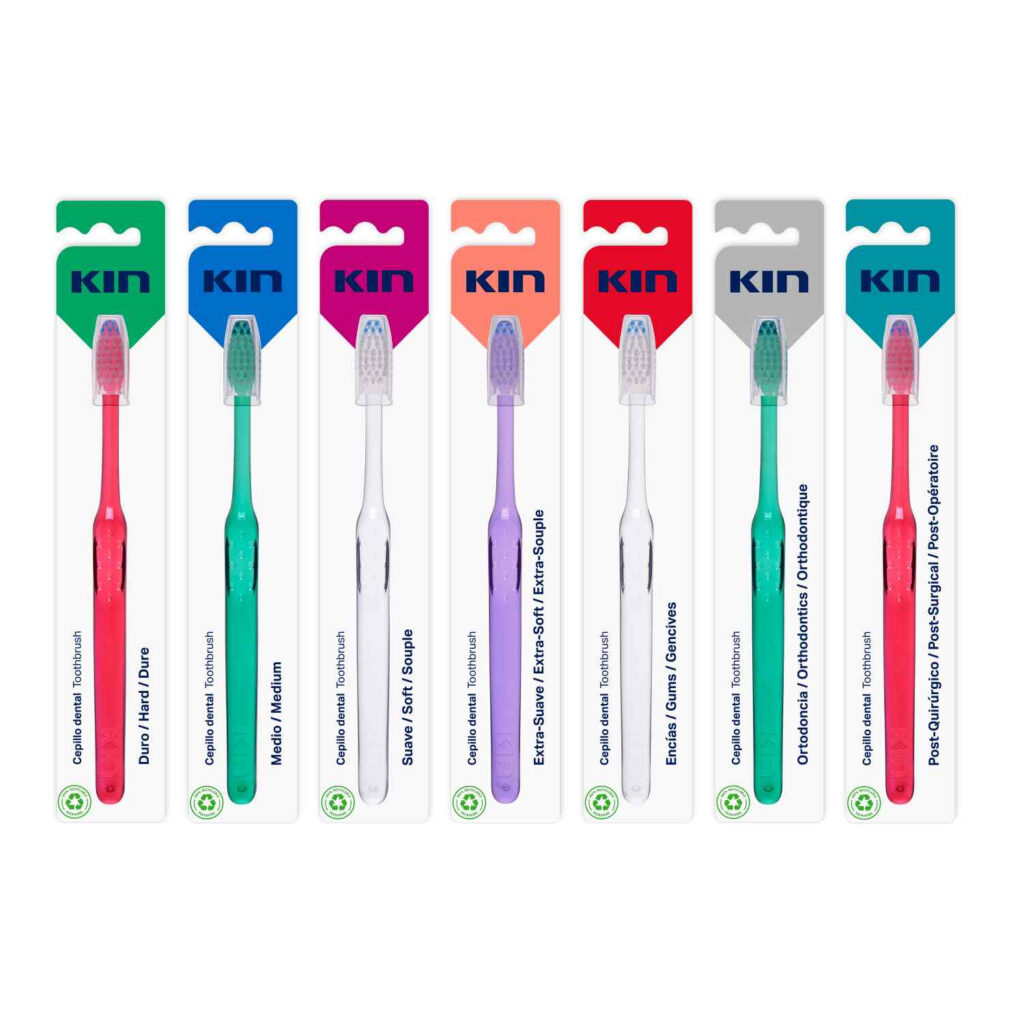Dental enamel is the hardest tissue in the entire body. However, every day it is exposed to multiple factors that affect its integrity, and over time it can become weaker and weaker. If you want to know how to strengthen tooth enamel, you need to learn more about its maintenance and about a very common condition nowadays: tooth sensitivity, which is directly related to the weakening of the enamel.
Dental sensitivity is a problem that affects a large part of the population. Detecting it is not complicated. At the slightest sign it is important to act in time to protect the different structures of the teeth as soon as possible, starting from the outside.
Do you also have sensitive teeth? Find out everything you need to know about enamel care and its relationship to tooth sensitivity.
What is dental enamel?
Dental enamel is a very hard tissue that covers the outer layer of each tooth. Its main function is to provide a high degree of hardness to facilitate the process of chewing food.
Likewise, dental enamel is responsible for protecting the teeth against extreme temperatures, both hot and cold, excessively acidic pH, and of course also against mechanical stimuli.
Although each person has a type of enamel that is more or less strong or thick, established genetically, it is important to maintain this tissue throughout life.
The main problem is that enamel cannot regenerate by itself. Over time it wears down and weakens, through a natural process that, if not properly cared for, will be accelerated by a series of bad habits.
Why does tooth sensitivity occur?
Dental sensitivity is an acute pain that occurs in the teeth due to their exposure to certain thermal, chemical or tactile stimuli. It is a fairly common pathology in young adults between 20 and 45 years of age, although it can also occur in children and older adults.
This form of sensitivity can have various levels in each person. The type of sensitivity in the teeth can also be different, varying in response to frequent external stimuli such as cold, heat, exposure to sweet or acidic foods, or through tactile sensations by direct contact.
Sometimes tooth sensitivity can be temporary, lasting a short time until the discomfort disappears. If you want to know more about how long tooth sensitivity can lastwe tell you about it on the KIN blog.
How do I know if I have tooth sensitivity?
Teeth are composed of several layers of tissue. The outermost, the enamel, is the hardest, responsible for protecting the teeth. Inside is the dentin, which contains thousands of nerve endings that are responsible for tooth sensitivity.
When the enamel is very thin or damaged, the dentin is exposed to external stimuli. At first the symptoms are weaker and may go unnoticed. But as time goes by they become more and more noticeable.
In general, the symptoms of tooth sensitivity described by most patients are as follows:
- Throbbing pain on mild stimulation.
- Very short duration of pain to the stimulus in question.
- Immediate localisation of the area where the pain is felt.
If you usually notice a sharp and intense pain in the same area of your mouth whenever you eat a cold, hot or very acidic food, it's time to act and find out how to strengthen tooth enamel. in the most effective way. Say goodbye to tooth sensitivity with our specialized products.
Discover our products for tooth sensitivity

Strengthening tooth enamel
Undoubtedly, the best way to prevent and avoid tooth sensitivity is to follow proper oral hygiene. For this purpose, there are multiple tools and specific oral hygiene products that help protect the enamel.
Want to know how to strengthen tooth enamel on a daily basis? Follow these recommendations:
Daily oral hygiene
To take care of tooth enamel, gums and the health of the mouth in general, it is very important to ensure proper brushing after meals. Choose a specific toothbrush with soft or very soft filaments to brush your teeth delicately without damaging the most superficial layer.
Eliminates during brushing all food debris and dental biofilm that accumulates in the mouth. You can help yourself with a special toothpaste from any of our ranges for tooth sensitivity. tooth sensitivity that favors the hardening of the enamel.
Food to strengthen the enamel
It should not be forgotten that enamel is a living tissue that is part of our organism. Like other tissues, it also needs specific nutrients to remain strong.
Foods with a high calcium content are good for bones and also for teeth, promoting the natural remineralization of enamel.
Avoid foods rich in sugar and acids that damage the enamel and opt for a varied diet including products rich in vitamins and minerals.
Enamel remineralization
In certain patients it is possible to remineralize the teeth through the use of specific products or professional treatment.
Products with fluoride such as toothpastes and mouthwashes are designed to strengthen enamel on a daily basis and also to repair it when damage is mild. These are essential from childhood and throughout adulthood, adjusting the content of fluoride according to the age and needs of each person.
Ask your dentist about options for preventing and treating tooth sensitivity, and how to strengthen tooth enamel with a little extra help. Teeth are for life, so don't hesitate to take the utmost care of them to keep them in perfect condition for as long as possible.


 What to consider when choosing the best electric toothbrush?
What to consider when choosing the best electric toothbrush? How to relieve pain with newly placed braces?
How to relieve pain with newly placed braces? How to keep your breath fresh?
How to keep your breath fresh?




